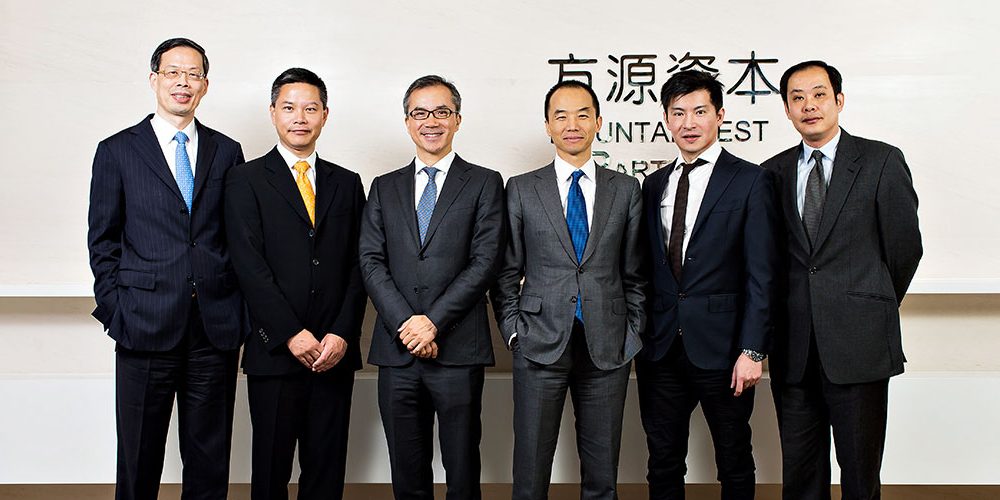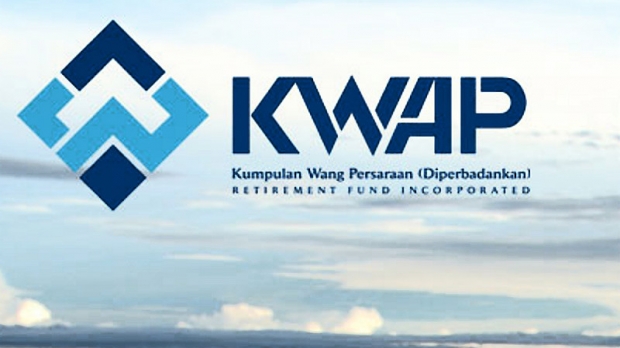Month: September 2016
Singapore Roti-Making Machine, Rotimatic Materializes After 8 Years And US$14.5 Million
After the easy-bake oven, consumer electronics has advanced by leaps and bounds with the introduction of Rotimatic – the world’s first robot that bakes fresh homemade roti, a flatbread that makes up the staple food diet of the Indian culture.
Entering into this new age of cooking, this idea formed and expanded when Pranoti Nagarkar Israni, a mechanical engineer and her husband Rishi Israni, a computer science graduate spent S$20,000 to create the Rotimatic prototype which won the Singapore Start-Up Competition in 2009 alongside with financial support from investors in their startup, Zimplistic.
Revealed by Tech in Asia, the Singapore-based startup company, Zimplistic since then has raised a staggering amount of US$11.5 million from NSI Ventures and Robert Bosch Venture Capital (RBVC) in their series B investment round held last July 2015.
But moving to realize the Rotimatic faced various challenges as Pranoti Nagarkar Israni explained the difficulties behind converting the four physical moves of making the roti – measuring, kneading, flattening, and roasting to be fully automatic as well as compact and affordable.
“The perfect roti has three layers, and it needs to puff up so the hot air can cook it from the inside,” said co-founder Pranoti Nagarkar Israni in an interview with Mashable. ”It is then do you realize how complex humans are when you try to replicate that with a machine.”
Though it took them 8 years and US$14.5 million, but Rotimatic was finally brought to reality and ready for shipment to the Singaporeans and United State citizens that have pre-ordered the product in 2014. With the pre-orders numbering more than 8000 orders at the retail price of US$999 per unit, Zimplistic has already bagged US$ 5 million worth of sales.
Making one roti every two minutes, Rotimatic has thus revolutionised the way the Indian cuisine can be made. With the machine, people can skip the hard work behind the process of making roti as users now only have to add in the ingredients and push a few buttons selecting the preferred thickness, softness as well as quantities to enjoy a delicious meal of roti.
About Rotimatic:
Rotimatic is the world’s first robot that makes fresh homemade rotis and wraps. The idea dates back to 2008 as co-founder Pranoti Nagarkar Israni found making roti, from the process of kneading the dough to cooking it at the hot stove, to be tedious and time-consuming. As a solution, she created this fully-automated roti-maker that can now cook up to 20 rotis in one round using less than 30 minutes which only requires the easy steps of adding wheat flour, water, and oil and pushing a few buttons.
Singapore To Be World’s Largest Fintech Hub, Marvelstone Group Announced
Singapore’s ambition to be a ‘Smart Nation’ is moving forward as MarvelStone, an Asian private investment group has announced on Tuesday that it will open the world’s largest fintech hub in Singapore next November.
The facility will be known as Lattice80, spanning over 30,000 square feet and to be located in Singapore’s Central Business District, an area that is notably close to the city-state’s key financial institutions, stock exchange, and regulators.
Joe Seunghyun Cho, Chairman of Marvelstone in Crowdfund Insider said, “We think Singapore is the right place for a global fintech hub for a number of reasons. Singapore, being a traditional financial and trading hub, has the legal infrastructure and access to global investors that budding fintech companies would look for.”
Reportedly to be an independent non-profit initiative, one of Lattice80 objective is to establish a global fintech connection. Besides, the project is also aimed to promote local fintech innovations through providing innovation support schemes to existing company and financial institutions.
While for fintech startups prototype, programs such as workspace, events, and educational programs is provided to help develop and expand their business models oversea. These projects are moving smoothly as Marvelstone works closely with Monetary Authority of Singapore (MAS).
Gina Heng, the CEO of Marvelstone furthermore added, “The time is right for innovation, and people are more receptive to the use of technology in financial services. Lattice80 aims to support the fintech ecosystem in Asia and bridge global players to the region.”
Besides MAS, the Marvelstone Group also seeks to bring partners onboard as well, voicing out their intentions to collaborate with other regional Fintech hubs like London’s Level 39, Australia’s Stone and Chalk as well as Israel’s The Floor to create a global ecosystem for fintech innovation.
Parentlane, A Connecting Platform For Parents Gets Funding From Capier Investment
Parenting can be a formidable task, as parents bear the responsibilities of raising a new life into the world, shaping their personalities and values.
For this, Parentlane offers a social platform that enables parents to connect with other parents and to a community of parenting experts from grandparents to teachers as well as child psychologists and nutritionists. The company works on a community model, which means it operates on the expansion of its increasing members and growing information.
Founded in December 2015, the Bengaluru-based startup leverages on machine learning and data science technology to map out a child’s development. The company specializes in the child development timeline from the age of a newborn to a toddler of eight.
The company was founded by Vijay Anand which has its first round of angel investment on May 2016 with the round led by Sujeet Kumar, the former president of Flipkart and Aprameya Radharkrishna, the co-founder of TaxiForSure.
On the other hand, this funding by Rohit MA came four months later as an extension of the angel investment round earlier in May whereby the managing director of Cloudnine Hospitals has made the investment through his personal investment arm. The amount was undisclosed.
“I believe Parentlane team has done a great job in leveraging technology to deliver personalized guidance to support parents during their early child development cycle,” said Rohit of Capier Investments, “I am personally excited with their plans in delivering superior value to the entire parenting community.”
The development of Parentlane was due to the realization of the needs of today’s city-educated millennial generation for precise and personalized information related to their child as they become parents. Relatedly, the app also provides parents the opportunity to track and treasure their memories with their child as childhood can be brief. The app is currently only available on the android platform.
About Parentlane:
Parentlane is a social parenting platform empowering parents by delivering personalized, timely assistance to raise smart and healthy kids. Parentlane also allows parents to map the development of their child from their first smile to when they crawl. Aside from that, parents can also obtain personalized baby care and child development tips from registered child experts or other experienced parents. The app cover all aspects of growth and development, brain development activities for kids, food recipes and tips for parents during the journey.
FountainVest Sees Fund Three Close with $2.1 Billion (U.S.)
FountainVest Partners announces the successful completion of its third fund (FountainVest China Capital) with a total capital commitment of $2.1 Billion (U.S.). Due to the oversubscription, the fund attracted exceptional support from current investors along with new institutional investors which included insurance companies, sovereign wealth funds, and pension plans from Europe, the Middle East, North America, Asia, and Europe.
FountainVest believes in China’s vast opportunities within the private sector as the industry consolidate, mergers and acquisitions will fuel the fire and new national leader will rise. With an increasingly complex environment, valuable opportunities rise via expertise and enhancement.
FountainVest was founded in 2007, a firm dedicated to investment and partnership with private enterprise in China – leaders bent on China’s transformation into a consumption economy. In its last round of funding, FountainVest raised $1.35 billion (U.S.) while its original funding campaign closed just shy of $1 billion (U.S.).
April 2016, saw FountainVest partner with Focus Media in the launch of a $400 million (U.S.) investment in sports companies in China and overseas. The firm’s previous investments have included IMAX China, O2O, Fangdd.com, Xingren, and Shanghai Kehua.
KWAP Invests RM124mil In Uber
Uber, a non-traditional asset, has just seen the investment of RM124mil by KWAP, Kuala Lumpur’s second largest pension fund. Following in the footsteps of Khazanah Nasional’s investment in tech start-ups seems to be the fuel behind Retirement Fund, Inc. (KWAP) investment of $30 million (U.S.) into the modern car-hailing Uber app. The recent round of funding, G series, began last year.
Investing in a unique asset is expected to benefit within the low interest rate environment. KWAP sources site technology investments within the firm as a growth sector beneficial to explore.
Currently, KWAP is handling RM123 billion funds and is reviewing its portfolio to include riskier investments as well as doubling investment allocations in private equity firms as well. Presently, 90 percent of KWAP investments are found in traditional assets including fixed income and equity, while 10 percent is invested in alternative investments.
KWAP seems to be following the trends of other conservative managers globally who are seeking to enhance performance in today’s challenging market and technology is particularly appealing.
KWAP joins Saudi Arabia’s Public Investment Fund, who invested $3.5 billion (U.S.) in the recent Uber fund-raising round. Uber is among one of the most funded start-ups globally with its lightning fast expansion into 70 countries worldwide.
Since its original launch in 2013 in Malaysia, Uber has successfully completed nine rounds of funding valued at $12.9 billion (U.S.). Presently Uber reports $13 billion (U.S.) in cash and credit available with losses of $1.2 billion (U.S.) in the first half of this year.
The Khazanah investment was performed via private equity funding, along with hundreds of millions of other start-ups including Fractal Analytics and Garena.





